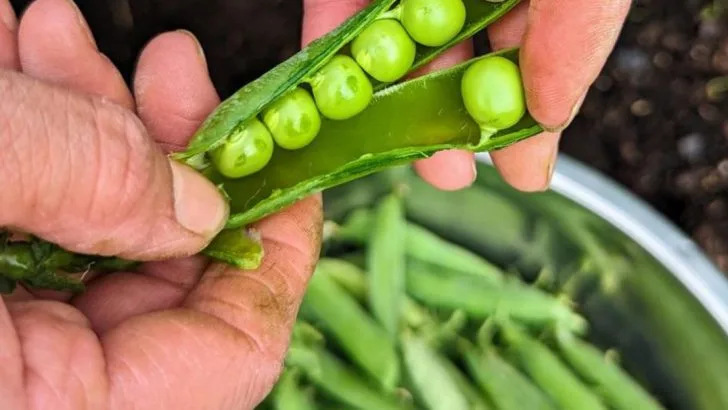Why rely solely on store-bought fertilizers when your plants can do the work for you? Some species naturally enrich the soil, fix nitrogen, and improve structure—making them true garden multitaskers.
From clover and comfrey to vetch and lupines, these plants feed the ground as they grow, support neighboring crops, and reduce the need for additives. They’re perfect for building long-term soil health in a more regenerative, hands-off way.
In this article, you’ll meet 17 powerful plants that act as living fertilizers, helping you grow a more self-sustaining, productive garden—all by harnessing nature’s built-in systems.
Comfrey
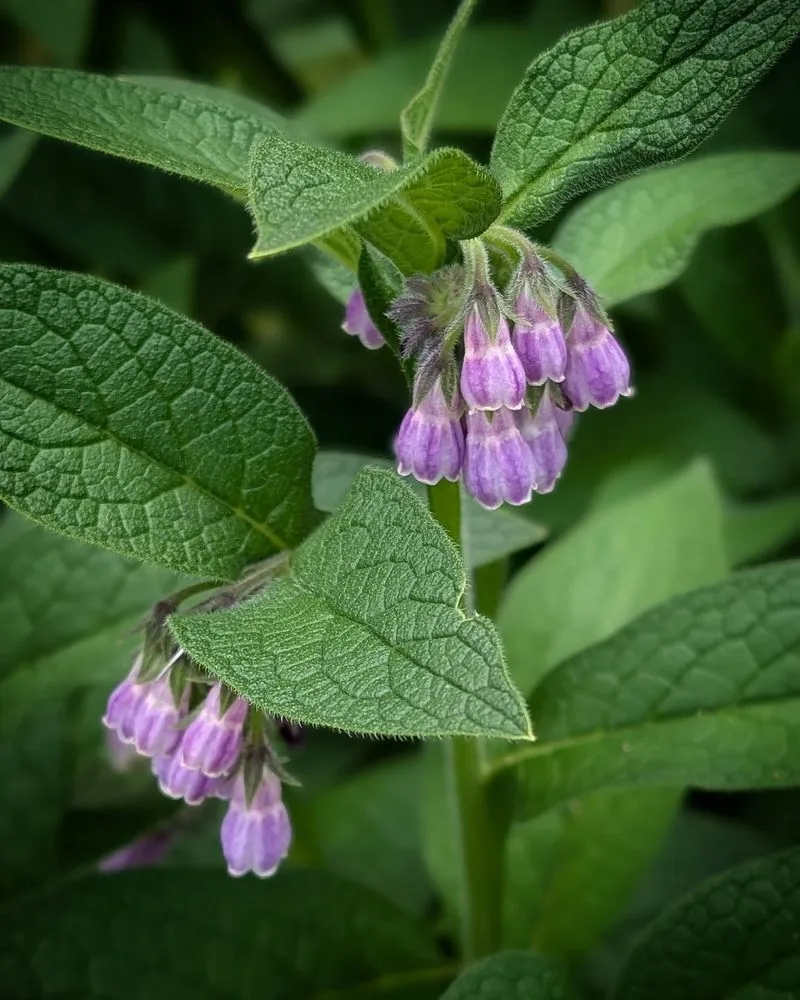
If there were a plant royalty for fertilizing the soil, comfrey would wear the crown. This powerhouse of a plant is revered for its ability to mine nutrients from deep within the earth, thanks to its robust root system. Comfrey leaves, once broken down, release these nutrients back into the soil, enriching it naturally. Often used in compost, comfrey accelerates decomposition, giving your soil a nitrogen boost. Whether you add its leaves directly to the soil or make a tea for watering, comfrey is a gardener’s secret ally. Its ability to invigorate soil is unmatched.
Clover
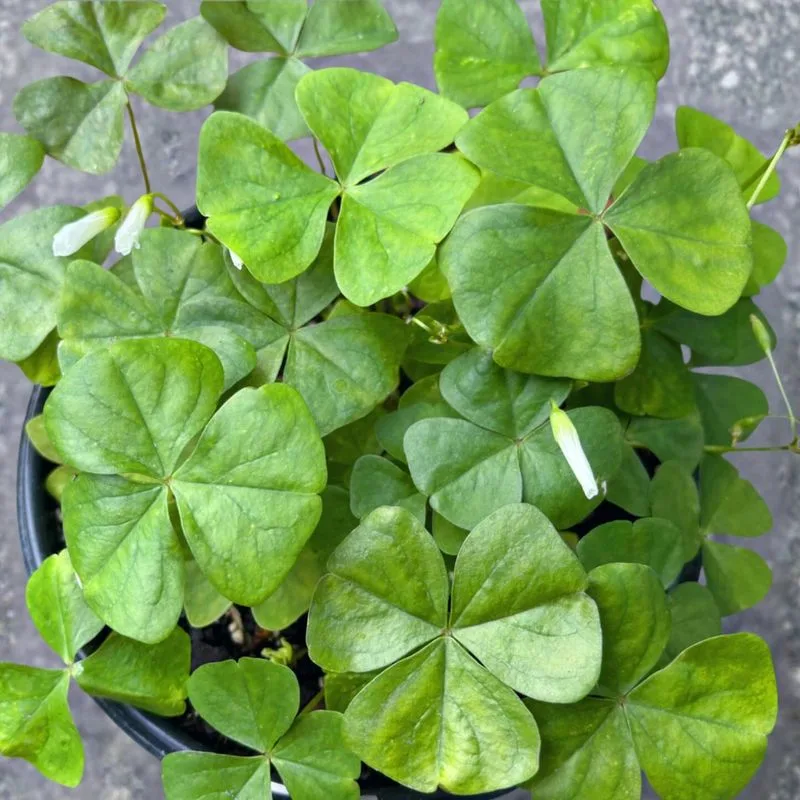
Clover’s charm goes beyond its luck-bringing reputation. Known for its nitrogen-fixing capabilities, clover plants enrich the soil, making them a favorite among gardeners seeking natural solutions. This unassuming plant works quietly beneath the surface, collaborating with bacteria to convert atmospheric nitrogen into a form plants can use. Whether scattered across a lawn or nestled in garden paths, clover provides a green carpet that nurtures the ground below. Plus, its low-maintenance nature means it asks for little while giving plenty in return. Embrace clover for a sustainable garden.
Alfalfa
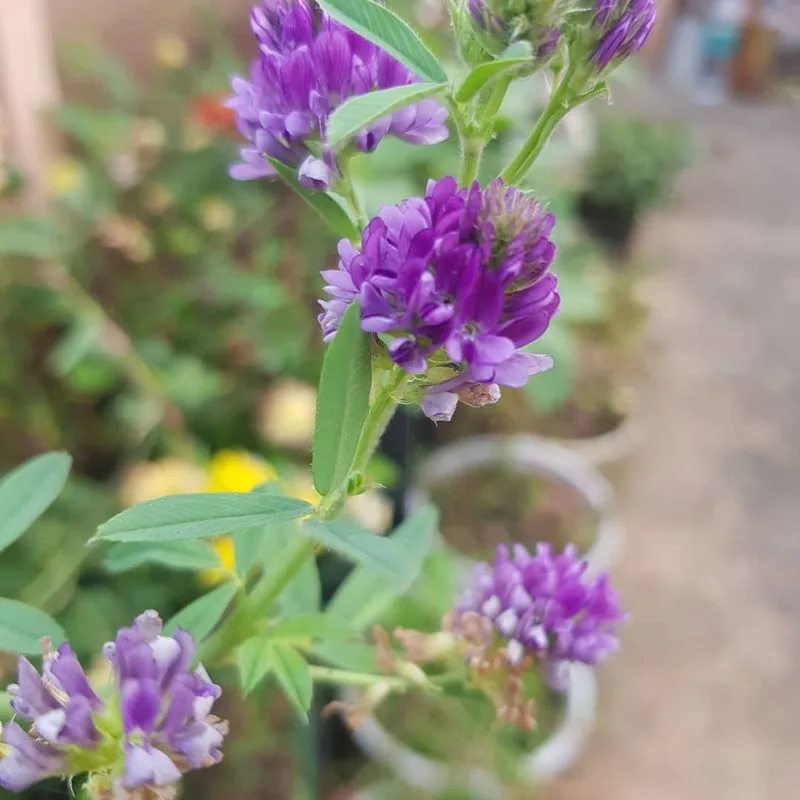
Alfalfa, often seen as mere fodder, holds a treasure trove of nutrients for your garden. This legume is lauded for its deep-root system, which not only aids in soil aeration but also pulls up minerals from the subsoil. Alfalfa’s leaves are rich in nitrogen, potassium, and phosphorus, essential elements for any garden. When used as a green manure, alfalfa revitalizes the earth, leaving it well-fed for the next planting season. Its addition to compost piles further accelerates decomposition, ensuring a nutrient-packed boost to your soil’s health.
Lupine
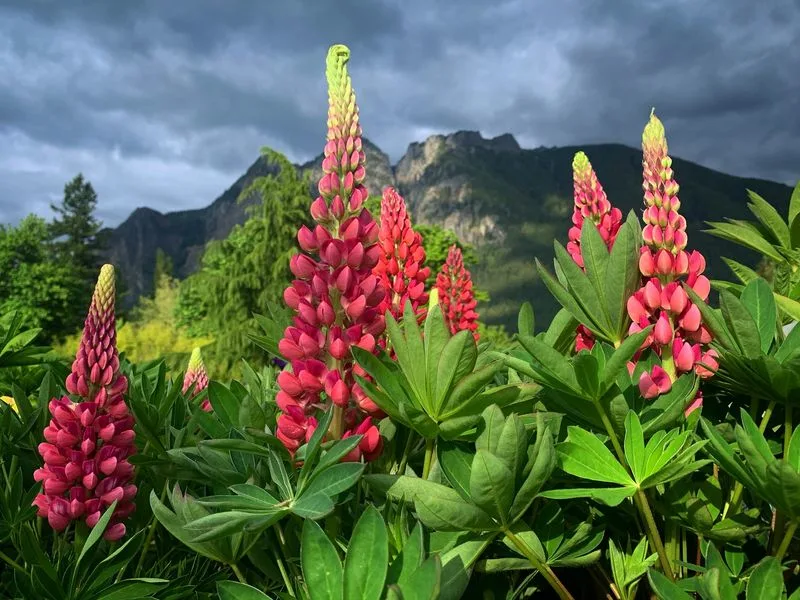
Lupine might win you over with its stunning spires of blue, purple, or pink flowers, but it’s the unseen magic beneath the surface that makes it invaluable. This plant engages in a symbiotic relationship with soil bacteria, transforming nitrogen from the air into a form plants can readily absorb. Beyond its fertilizing prowess, lupine also improves soil structure, preventing compaction. It’s a dual-action performer in any ecological garden. Plant lupines to not only enjoy their visual appeal but also reap the benefits of enriched soil for seasons to come.
Fava Beans
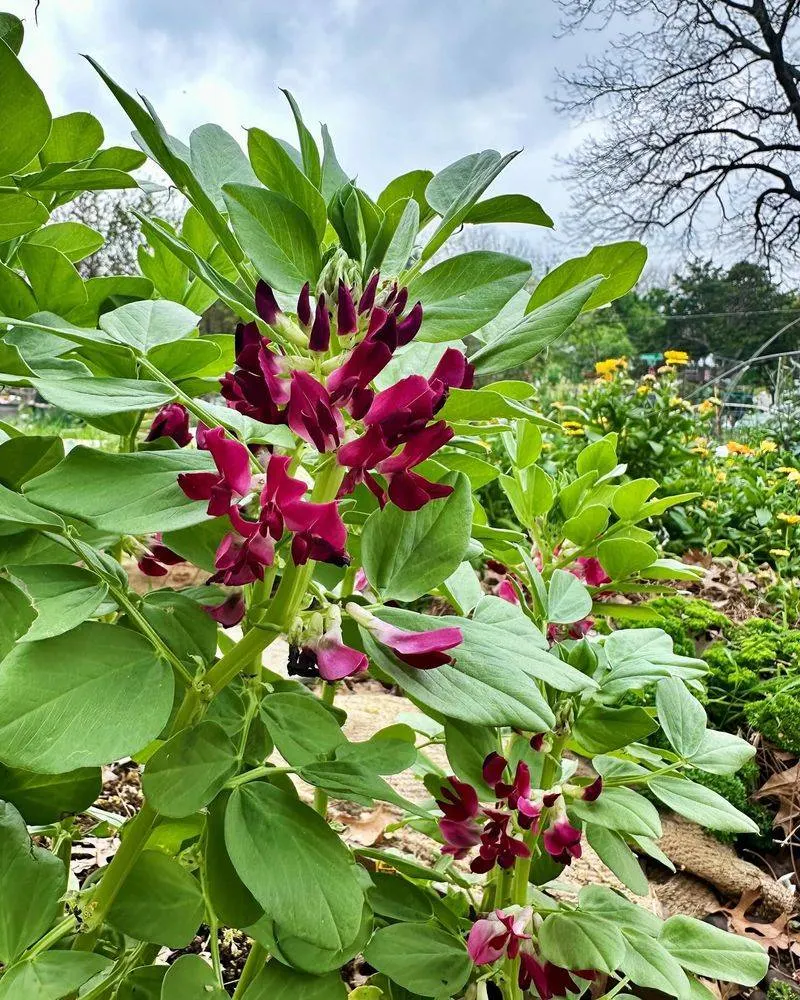
Fava beans bring more than just culinary pleasure; they are a boon to the soil too. As nitrogen fixers, these beans enhance soil fertility by converting atmospheric nitrogen into a usable form. This process not only benefits the beans themselves but also enriches the surrounding plants. In gardens, fava beans can be interplanted with other crops to naturally boost soil nutrition. The bonus? Once harvested, the plant residues continue to decompose, adding organic matter and enhancing soil structure. Cultivate fava beans for a bountiful garden.
Vetch
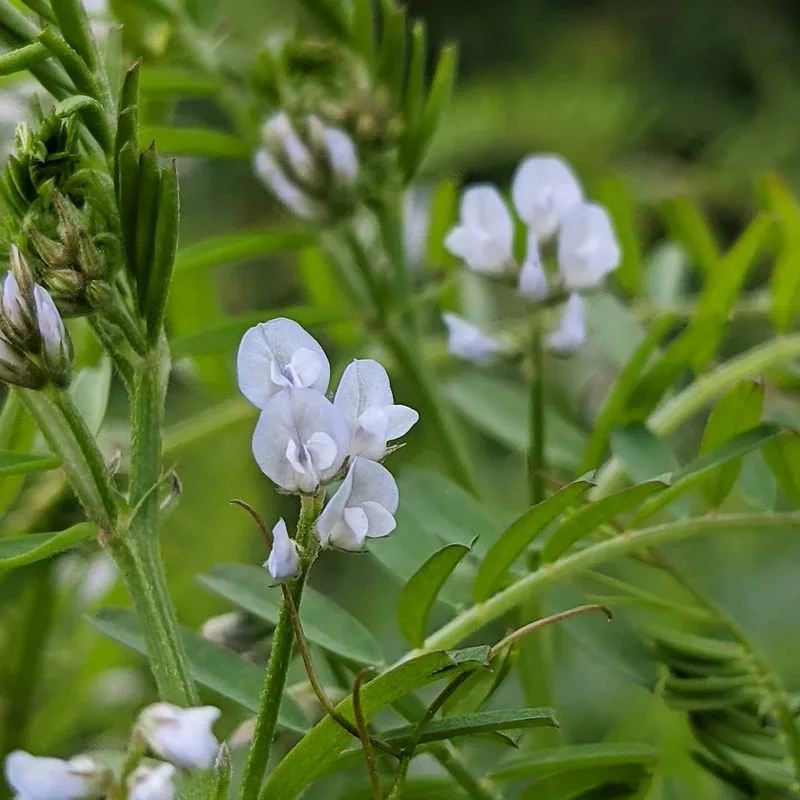
When it comes to soil enrichment, vetch plays a subtle but effective role. This legume, often overlooked, is adept at fixing nitrogen and improving soil quality. Its sprawling vines and vibrant purple flowers are a treat to the eyes while its roots work wonders underground. Vetch is often used as a cover crop, preventing soil erosion and adding essential nutrients back into the earth. It’s a trusted companion in sustainable agriculture, offering a natural way to maintain soil health. Let vetch weave its magic in your garden.
Beans
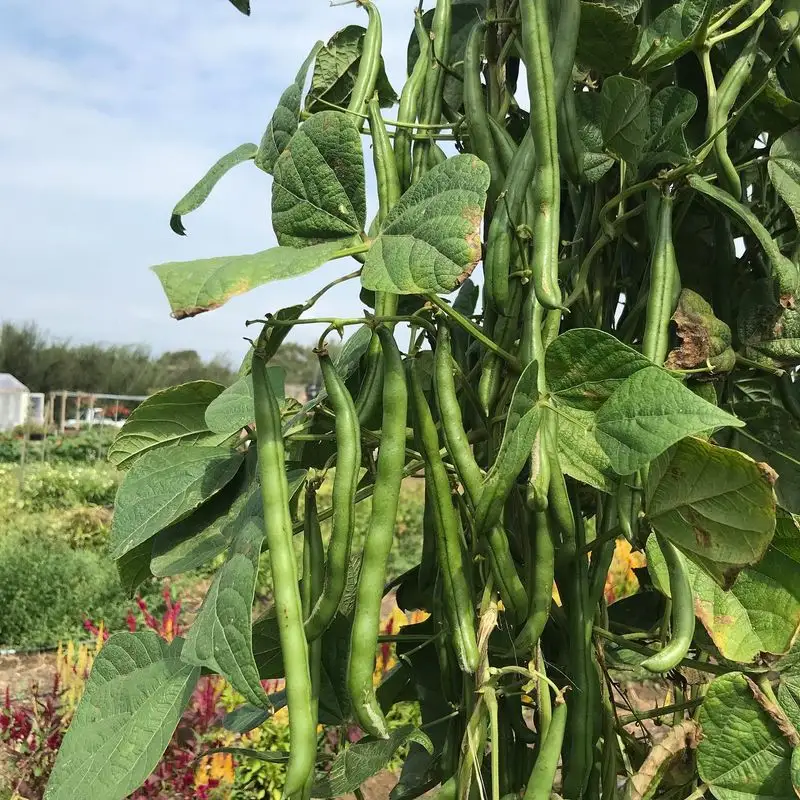
From the humble green bean to the more exotic varieties, beans are champions of soil enrichment. These legumes are proficient nitrogen fixers, working tirelessly to capture atmospheric nitrogen and convert it into forms that nourish plants. Whether grown in rows or scattered among other vegetables, beans enhance the soil they grow in. Their versatility in the kitchen is matched by their utility in the garden, as they leave behind residues that further boost soil fertility. Beans are a must-have in any garden seeking natural soil vitality.
Peas
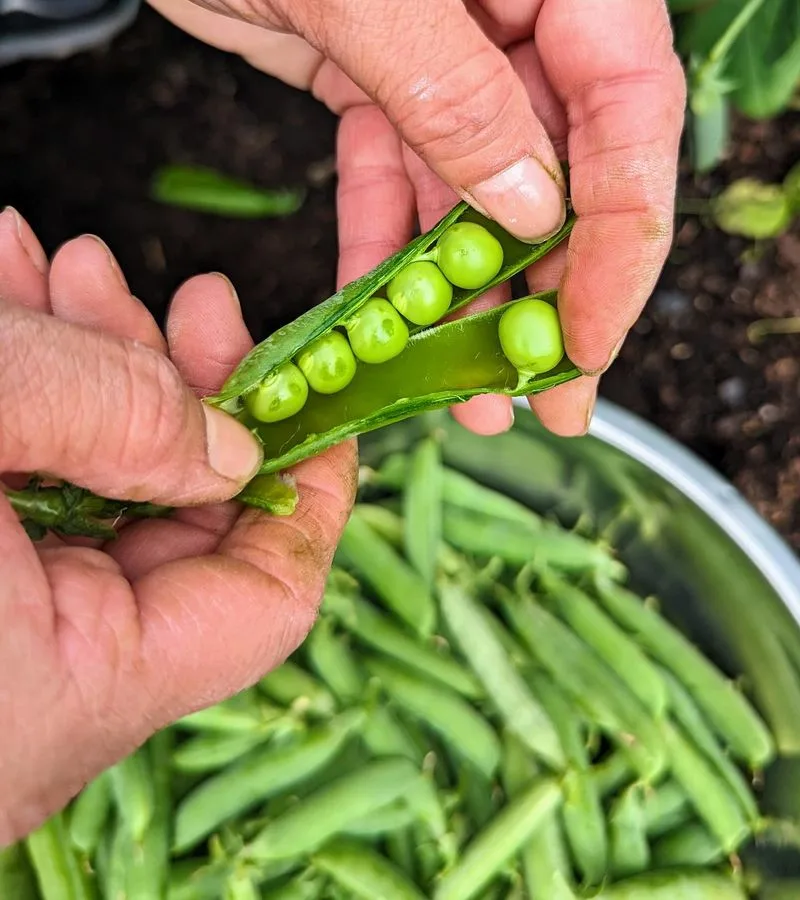
Peas may be petite, but their impact is profound. Known for their nitrogen-fixing abilities, pea plants enrich the soil by working with bacteria to convert nitrogen from the air into a usable form. This natural process reduces the need for chemical fertilizers, making peas a sustainable choice for any garden. As they grow, peas offer not only nutritious pods but also a boost to the soil’s health. Once their cycle is complete, the remaining plant matter continues to nourish the earth, creating a lasting legacy of fertility.
Soybeans
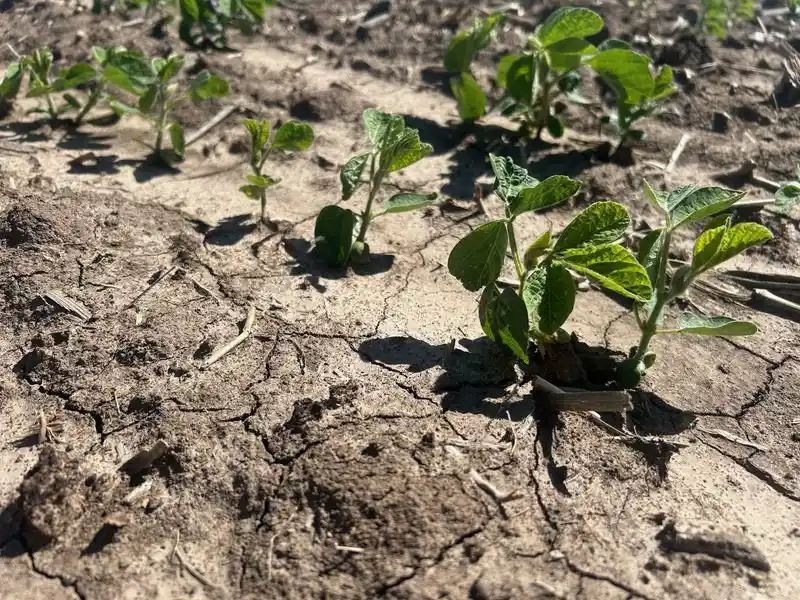
Soybeans stand tall not just as a global food crop but also as a soil enhancer par excellence. This legume is a master of nitrogen fixation, collaborating with rhizobia bacteria to enrich the soil. As soybeans grow, they improve soil structure and fertility, supporting the growth of subsequent crops. The residues left after harvest continue to nourish the earth, making soybeans a sustainable choice for crop rotation. Whether in large fields or small gardens, soybeans offer a bounty for both farmers and the land they cultivate.
Hairy Vetch
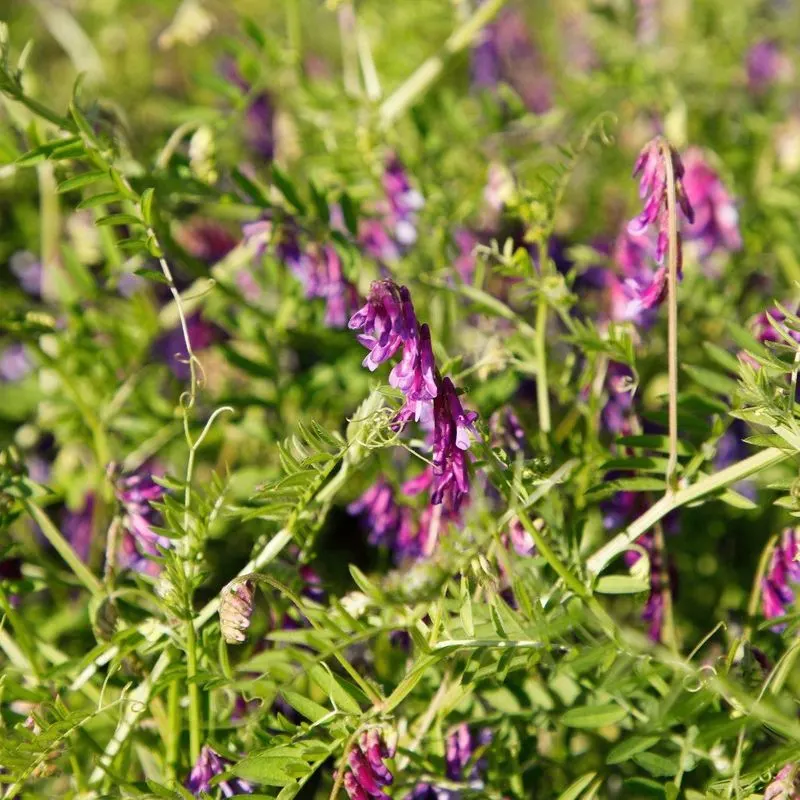
Hairy vetch might sound like an eccentric character, but it’s a garden powerhouse. This legume is adept at fixing nitrogen, enriching the soil it covers. Often used as a cover crop, hairy vetch prevents erosion while its deep roots aerate the earth. Its lush growth adds organic matter as it decomposes, enhancing soil structure and fertility. With its ability to thrive in various conditions, hairy vetch is a versatile choice for gardeners looking to boost soil health naturally. Let its vibrant growth inspire your gardening journey.
Sweet Clover
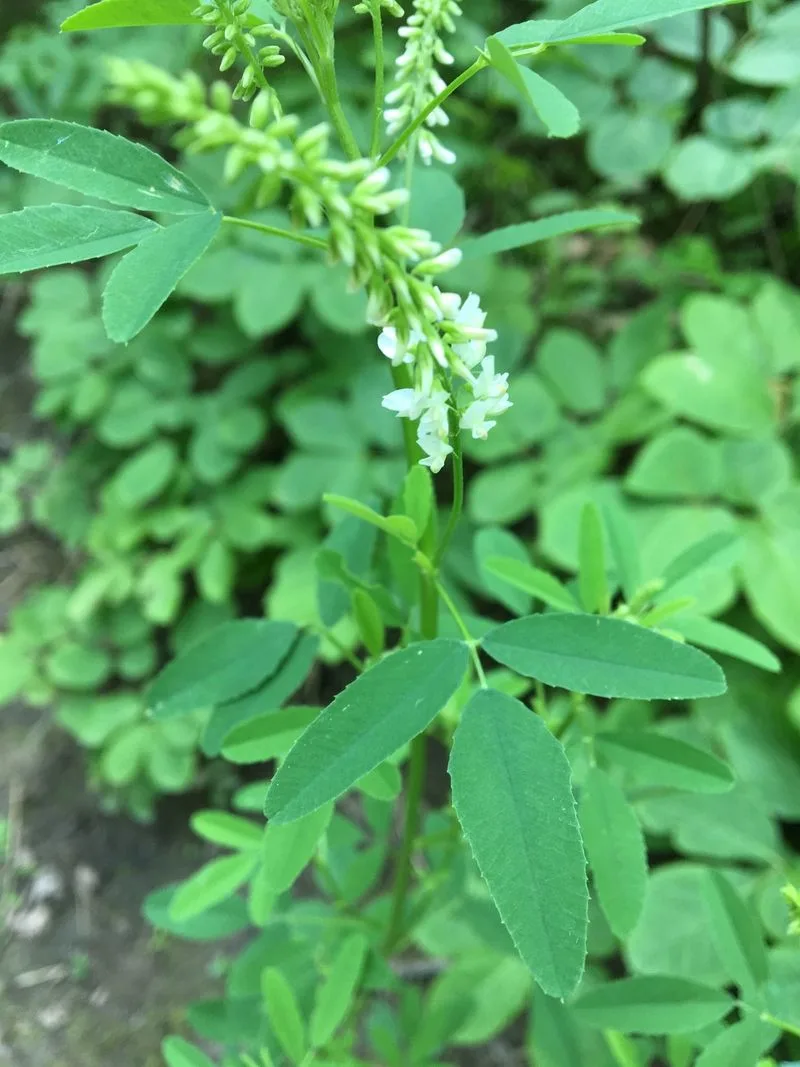
Sweet clover, with its fragrant blooms, might seem like just another flower, but beneath its beauty lies a hardworking plant. This biennial legume is excellent at fixing nitrogen, improving soil fertility significantly. Sweet clover’s roots penetrate deep, breaking up compacted soil and enhancing drainage. The plant’s ability to thrive in various environments makes it a versatile addition to any garden. As a bonus, sweet clover also attracts pollinators, ensuring your garden remains vibrant and lively. Discover the benefits of adding sweet clover to your space.
Austrian Winter Pea
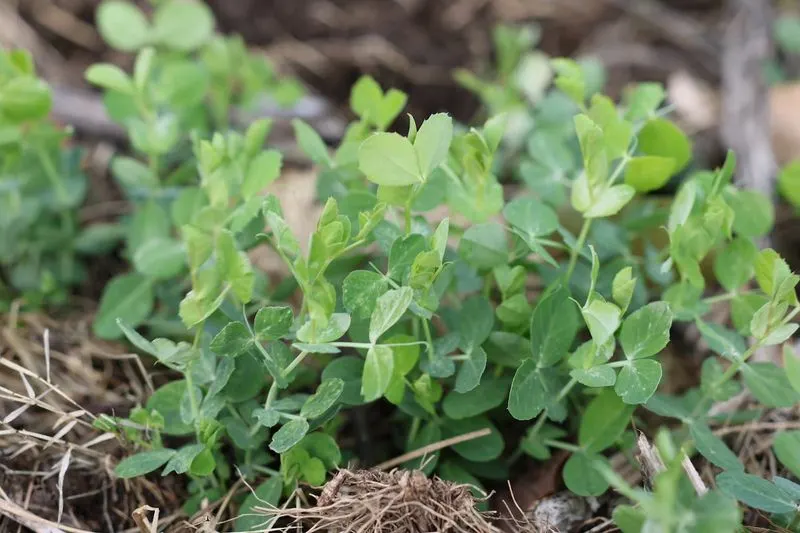
Austrian winter peas might have a seasonal name, but their benefits last year-round. These peas are superb at fixing nitrogen, enriching the soil even in colder months. As they grow, they form a dense mat that protects the earth from erosion and adds organic matter upon decomposition. Their hardiness makes them ideal for winter gardens, providing greenery and soil enhancement when most plants lie dormant. Cultivating Austrian winter peas ensures a fertile start come spring, setting the stage for a thriving garden season ahead.
Buckwheat
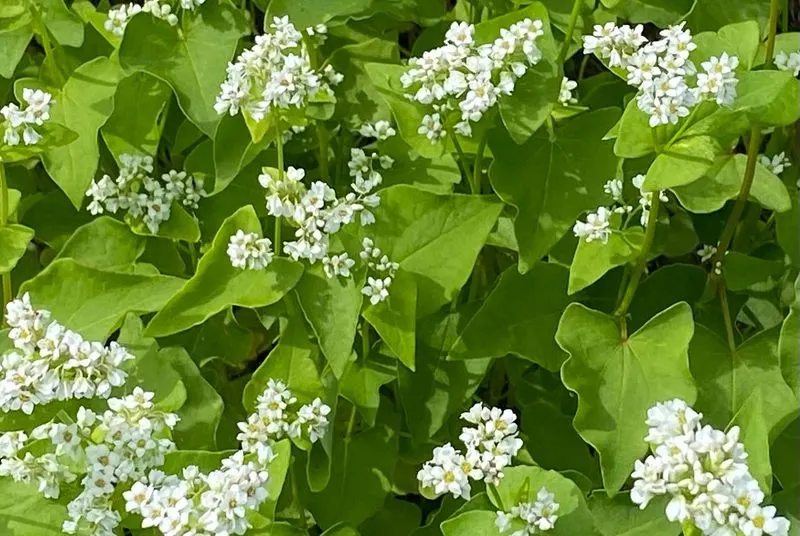
Buckwheat may not be the first plant to spring to mind for soil enhancement, but this fast-growing crop brings numerous benefits. Known for its ability to scavenge phosphorus, buckwheat makes this essential nutrient more available to subsequent plants. Its quick growth provides ground cover, suppressing weeds and preventing soil erosion. As it decomposes, buckwheat adds valuable organic matter back into the earth, enriching the soil for future crops. This plant is a remarkable ally in sustainable gardening, offering both beauty and utility.
Sun Hemp
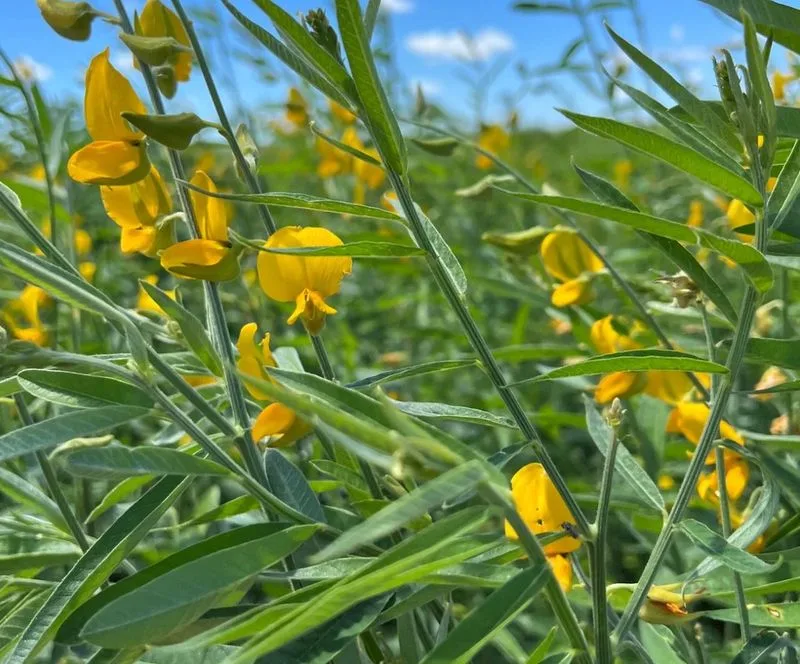
Sun hemp stands out with its brilliant yellow flowers and towering growth. Beyond its striking appearance, sun hemp is a champion at fixing nitrogen and improving soil structure. As it grows, it adds biomass, which, once plowed under, decomposes rapidly, enriching the soil with organic matter. Perfect for tropical and subtropical climates, sun hemp is a rapid grower, providing quick ground cover and weed suppression. Its dual role in beautifying and nourishing the garden makes sun hemp a valuable addition to any ecological landscape.
Fenugreek
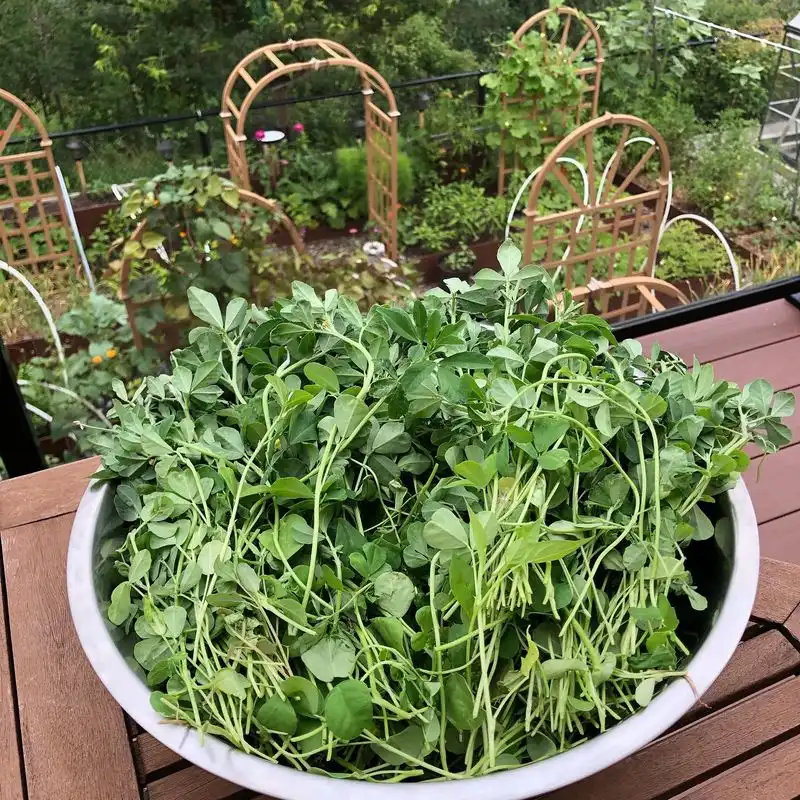
Though often associated with culinary uses, fenugreek is a garden ally you shouldn’t overlook. Known for its nitrogen-fixing abilities, this herb improves soil fertility, making it a valuable addition to any crop rotation. Its rapid growth helps suppress weeds, while its decomposing plant matter enriches the soil with organic nutrients. Fenugreek is low-maintenance, thriving in a variety of soils, and its aromatic leaves can be a delightful addition to your culinary adventures. Incorporate fenugreek into your garden for a fragrant, fertile plot.
Mustard
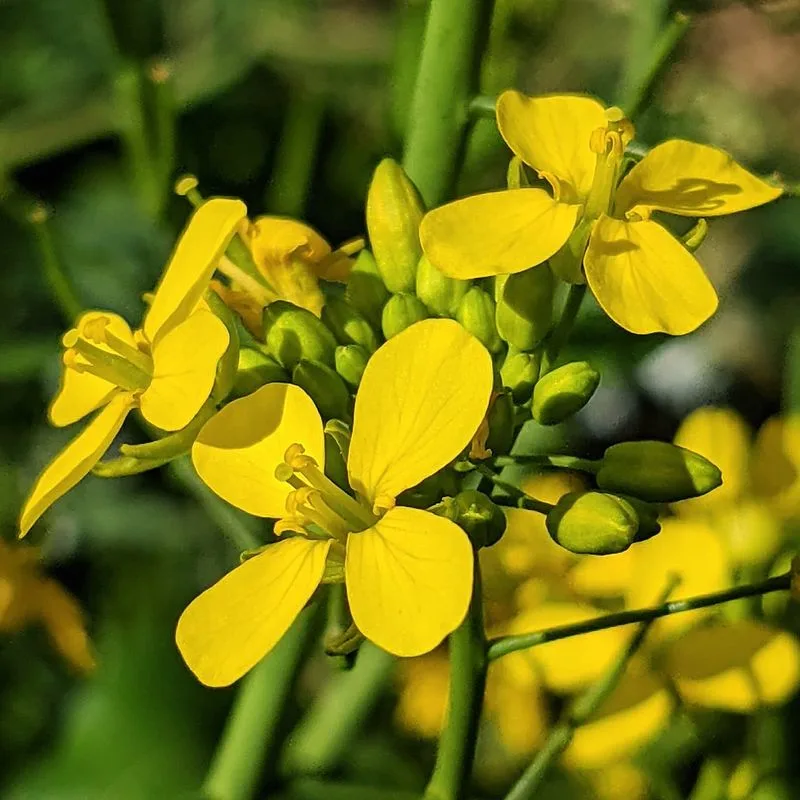
Mustard plants bring more than just a culinary kick; they are exceptional at enriching the soil. Known for their biofumigant properties, mustard plants release compounds that help control soil-borne pests and diseases. Their deep roots break up compacted soil, improving aeration and drainage. Once matured, mustard plants can be tilled back into the soil, adding valuable organic matter that nourishes future crops. This process also helps reduce nematode populations, making mustard an integral part of sustainable agriculture. Add mustard for a healthier garden ecosystem.
Radish
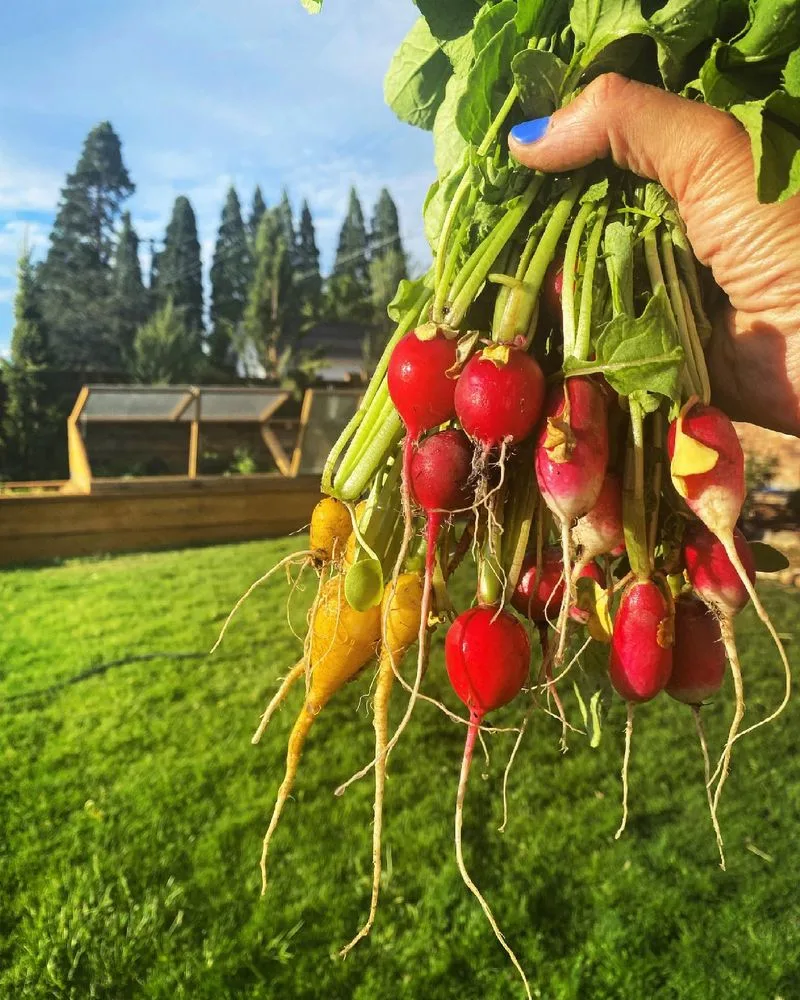
Radishes might be humble in appearance, but they pack a punch when it comes to soil improvement. These root vegetables are excellent at breaking up compacted soil, enhancing aeration and drainage. Radish roots delve deep, bringing nutrients closer to the surface as they decompose. This process not only enriches the soil but also facilitates better growth for subsequent plants. Fast-growing and easy to cultivate, radishes provide an efficient way to prepare your garden for future planting. Embrace radishes for their dual role in soil enhancement and culinary delight.

